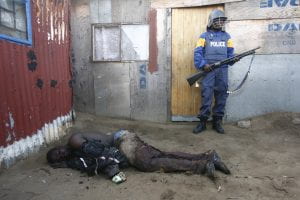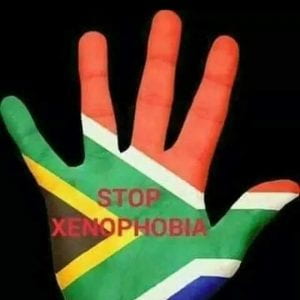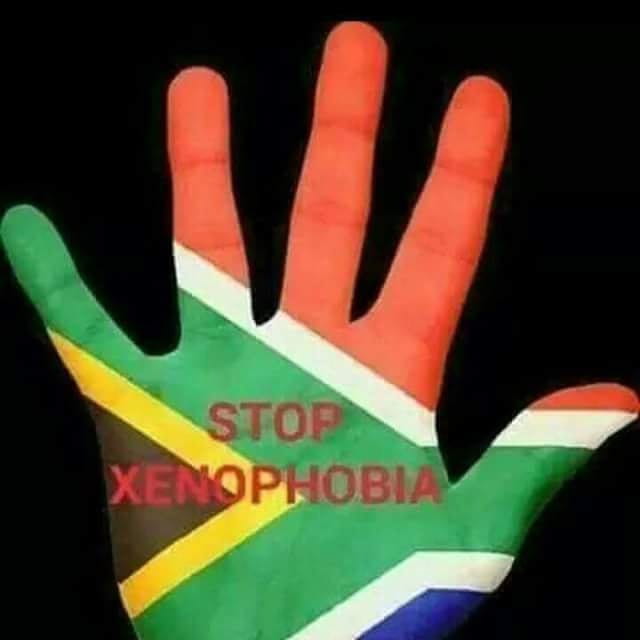Over three weeks ago, African immigrants in South Africa were brutally attacked and their properties destroyed by local citizens within various cities and provinces in the country. The conflict while still in its latent stage, initially began late August 2019 through petite skirmishes and altercations between foreign truck drivers and local south African citizens before it rapidly escalated into a full-blown violent conflict in mid-September 2019. The attacks which started in form of a riot protest with chants and songs that demanded foreigners return to where they came from in native Zulu language (South African native language) which was specifically aimed at immigrants from other African nations. During the protest, they began looting properties, destroying and burning down business enterprises owned by African immigrants. They also attacked any immigrant that was within protesting territories or those who tried to either protect or prevent their business stores from being looted or destroyed, which led to the death of twelve African immigrants. Properties worth millions of dollars was estimated to have been looted and destroyed, while thousands of immigrants are still licking their wounds due to the injuries sustained during the chaotic protest.

There are over 3.5 million immigrants in South Africa (a country with over 50 million people), 70% of which are from neighboring nations such as Zimbabwe, Lesotho and Mozambique, while the remaining 30% constitutes other nations particularly Malawi, United Kingdom, India, Nigeria, amongst others. Several of these immigrants are often business oriented with hope of exploring their entrepreneurship skills and attributes due to various economic gaps within their settlement areas. They mostly begin by creating small business enterprises and employ locals to assist in the growth of the business. This move according to the World Bank reports has greatly increased the employment rate and influenced the nation’s wage rate, with an immigrant worker generating approximately two jobs for local citizens. Although investments by immigrants has continuously and significantly improved the socioeconomic status of the country, it has also generated resentment and envy amongst locals in various communities with claims that migrants (specifically Africans) were taking away jobs meant for local citizens.

The aftermath of the xenophobic attacks generated a series of condemning messages and reports from several African nations, world leaders, international organizations, sociopolitical and economic heavy weight individuals and institutions, celebrities amongst others. Despite the damage achieved by locals, they continuously sent hate messages, which led to the evacuation of several immigrants from Ethiopia, Zambia, Nigeria. A private Nigerian airline provided free flights to all Nigerian immigrants, a move for which almost a million immigrants signed-up, and almost 200 people were repatriated back to Zimbabwe, amongst others. The level of damages, loss, injuries and deaths due to the xenophobic violence resulted in reprisal attacks in a few other African nations such as Nigeria, in which structures owned by South African communication company MTN and its affiliate stores popularly known as Shoprite, were attacked and operations were disrupted, Zambia closed down three South African malls and canceled a football match between both nations, Botswana has begun issuing a South African travel advisory to its citizens, while several African celebrities have vowed not to perform their entertainment tours or visit the country until there are visible signs of improvement.
During the de-escalation stages of the violent conflict, a veteran South African politician condemnation speech against the negative behaviors and violent attacks against fellow African immigrants was quickly disrupted and aggressively challenged by the people, which shows a lack of remorse or regret for their shameful acts of violence which can be said of the entire South African government. Although the South African president alongside some of his aides have tendered an official written apology letter to leaders of affected African nations, it is believed to be barely a strategic and baseless diplomatic act which could be confirmed in the words of Marc Gbaffou (a member of the African Diaspora Forum that creates awareness for the rights of migrants in South Africa) who claimed “there was no political will to end the continuous xenophobic attacks against African immigrants which has become clear for the whole world to see”.
Although the African Union Commission Chairperson, Moussa Faki Mahamat had issued a statement which outrightly condemns the violent attacks and destructions against African immigrants, much needs to be done to ensure events such as these kind will forever remain a buried issue in the past. The safety and wellbeing of immigrants are to be taken with utmost respect by rendering valuable services in all its affairs with an experiential focus mostly placed on their security which should not be bridged irrespective of any unfathomable and unreasonable excuses. There is a need to put in place restrictive measures and binding sanctions to serve as precedence that guides against the continuity of these persistent shameless acts. Despite the United Nations high commissioner for human rights, Michelle Bachelet’s statement to the South African authorities urging them to ensure adequate protection for all victims of the xenophobic attack and make all perpetrators accountable, little has been done in this regard, only a few individuals were casually arrested due to their participation in the violent attacks, while the body language of the nation remains negative towards achieving a permanent resolution.

Humanity has been at logged-head with each other for a long time and there is a need to embrace and increase the volume of peace. In the world today, more genuine efforts should be put in place to reduce and if possible, eliminate the regular occurrence of conflict and violence at both the international and national level. Africa most especially, needs to put more focus on ensuring democracy and good governance are adequately consolidated, rather than laying emphasis on misplaced priorities or negative issues. The South African government needs to address the root cause of the continuous xenophobic attacks against African immigrants, which is the high rate of “Unemployment”. The historic timeline and trends, magnitude and possible continuity of the xenophobic attacks, also call for an urgent intervention from international organizations such as the United Nations and African Union, to ensure adequate measures are truly in place to ensure discontinuity of such attacks, while strict sanctions are to be placed on them, should they fail to meet required security standards.

